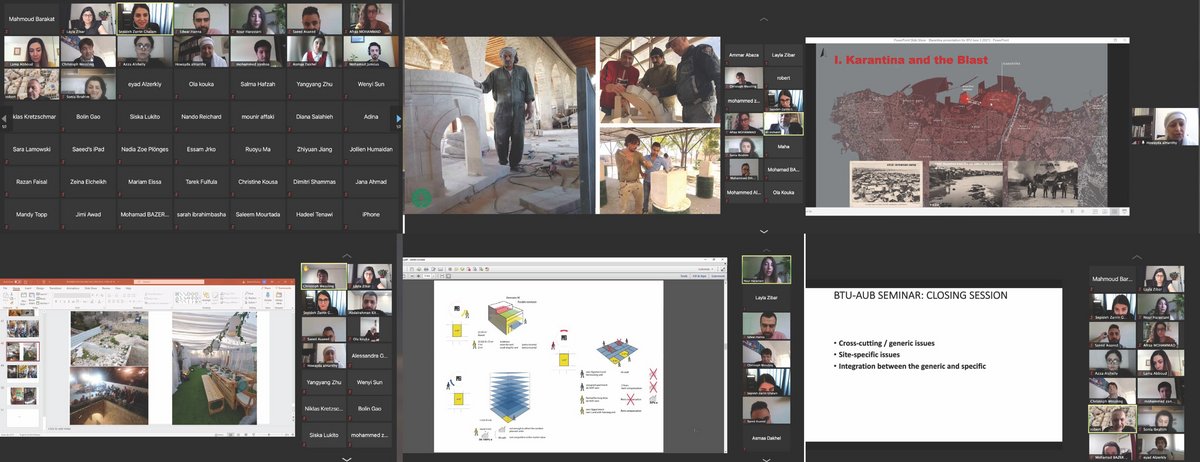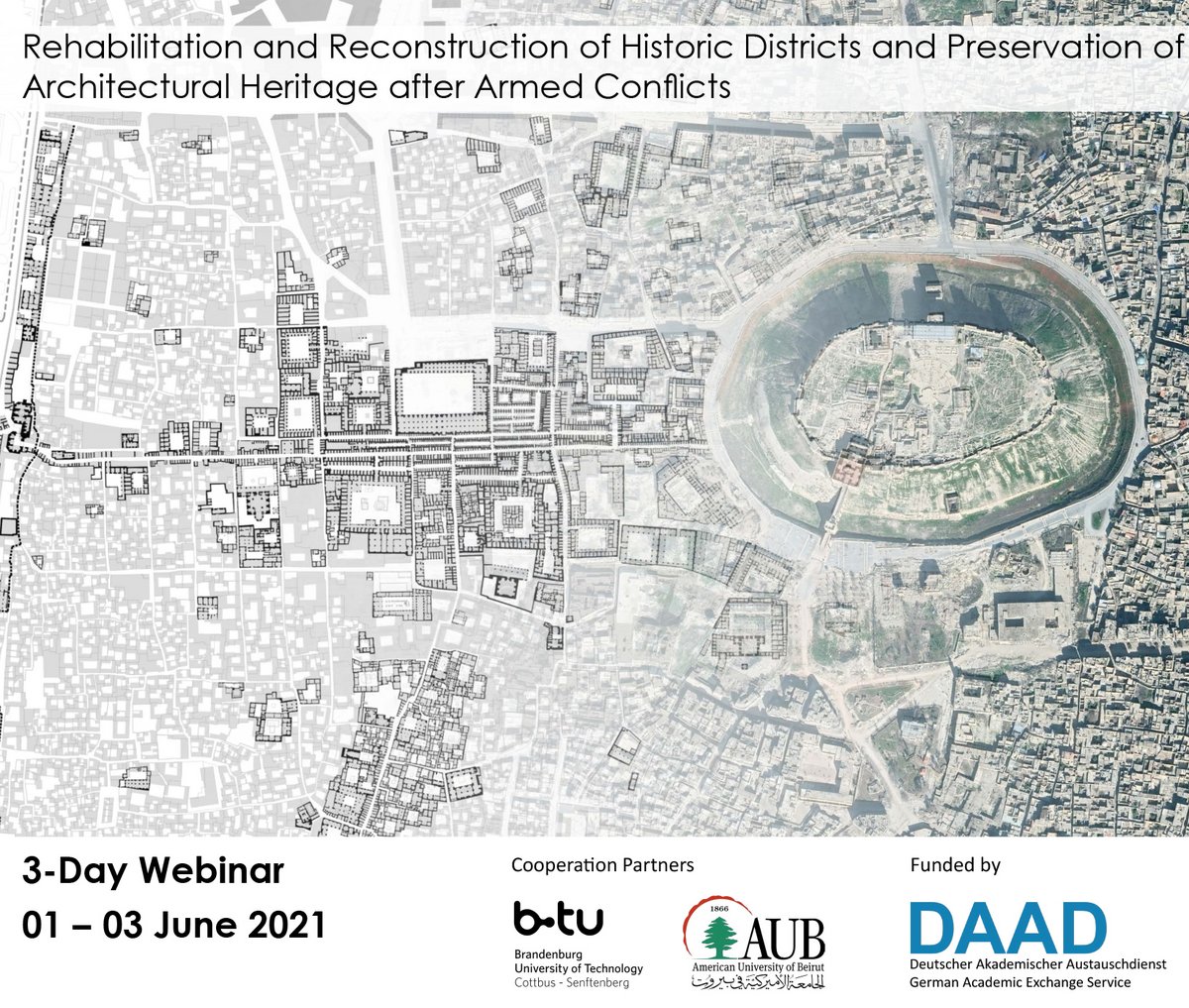Second Block Course 19 - 21 September

The second block course in the framework of the BTU-AUB cooperation on the post-conflict reconstruction of historic Syrian cities focuses on the impact of socio-economic dynamics on the urban and architectural reconstruction of historic quarters. It hence investigates the interplay between the morphological and socio-economic processes of recovery. This block course opens up interrelated thematic frameworks for further debates and dialogues among the experts and participants. The themes include:
● International Lessons: Innovative interventions - innovative methods
● Syria & MENA: Urban Stories and News from the Land
In this 3-day seminar, questions around intervention and societal dynamics of in/post-crisis will be linked to the reconstruction and recovery process that resurface in periods on (in)stabilities. Similar to our former course, the integrated and strategic planning process is the umbrella approach to understanding and building on how the urban, architectural and territorial scales interplay and synergise multifaceted aspects of crises. Therefore, this course aims to dig deeper into different space-time-frames of past-present-future responses and change of the society-economy-space triad. This second block course focuses on in and post-crisis reconstruction that impact and catalyses wide practices of heritage preservation and urban development within a comprehensive yet tactical manner. Syria and MENA theme aims to tackle the historical and contemporary contested study areas within other local and international contexts. Therefore, it is fundamental to rethink different intervention strategies and socio-spatial practices, which this course will introduce and further discuss. Finally, the international and innovative methods theme will shed light on existing lessons and developed tools to map and address crisis-associated challenges, including (forced) displacements, marginalisation, increasing inequalities and (un)successful interventions. The main goal is to set stepping stones for more inclusive scenarios towards meaningful and peace-led reconstruction practices within and despite resurfacing instabilities.
The seminar is structured based on highlighting an aspect of each theme during each day to frame relational realities through inputs from the cooperation team, guest experts, and the participants. The event will be conc luded by a discussion round on the intersection of the proposed frameworks. (see the programme)
First Block Course 01 - 03 June 2021

The second event of BTU-AUB cooperation project opened up three interrelated thematic frameworks for further debates and dialogues among the experts and participants. The themes included:
- Integrated and strategic planning
- Study of urban values and intervention criteria
- Participation and partnership
In this 3-day seminar, initially the topic of urban recovery was linked to the integrated and strategic process of planning as an umbrella approach for synergizing multifaceted aspects of post-conflict / post-trauma reconstruction, heritage preservation and urban development within a comprehensive yet tactical manner. With regards to the historic, though contested context of the study areas, application of a value-based perspective in the reinterpretation and reconstruction course of post-conflict circumstances was discussed. In addition, the theme of participation and partnership in view of different sets of challenges such as displacement and marginalisation was debated.
This seminar was structured based on highlighting one of the focal themes on each day while constantly making bridges between the three themes through several inputs from the cooperation team, guest experts as well as the participants. Moreover, the eight working groups presented their proposals for dealing with the recognized problem and challenges pertinent to each case study area and accordingly received feedback for further follow-up of the study. The event was concluded with a discussion round on the intersection of the three proposed framework while reflecting on the specific conditions and requirements of each case study area. (see the programme)

